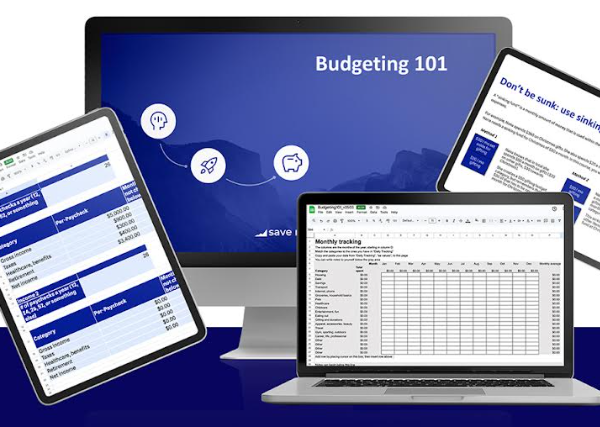In the months that I have been spending in Southern California, all I can think about as I traverse the roads in a borrowed vehicle is… look at all these metal bodies, consuming our money. I wondered what should be big maintenance costs to look out for, and what I could do to lower that. Luckily, my friend Wade over at @mtnmoneymaster is sharing with you all today some really actionable, simple steps you can take, to lower your car maintenance bills and not be taken advantage of.
==========
You know that new car feeling? You have just landed that sweet ride you have had your eyes on for a long time. Maybe you have made it through the car dealership gauntlet, which is about as fun as going to the dentist. Now, you are on the road and ready to enjoy your new purchase.
One of the most under-estimated costs for a car is its maintenance. Cars are machines that need upkeep to run smoothly, and as life goes, lots of things happen along the journey. I am not here to turn you into a car expert. I’m not one either. I’m here to teach you what to look for and how to be resourceful. Doing this homework ahead of time will save you a lot of future stress.
Research Your Car Before You Buy It
Generally, there are milestones on when to replace things such as brake fluid, engine filters, and more. Unless you’re a car junkie, you don’t know these off the top of your head. Do a quick google search on your car to find its maintenance schedule. This could also be in your car’s manual. While generic maintenance schedules are out there, it is better that you find one that is specific to your car.
A great way to get estimates for your future maintenance costs is from your local shop (more on this shortly) Talk to one of the employees who manage the appointments and quotes. You should be able to get quotes for the different services you’ll need along the way.
Also, do a little research on the issues that your make/model may encounter along the way (outside of general maintenance). Older Subaru Foresters have issues with head gaskets needing to be replaced. I decided to buy a newer generation that hasn’t had those issues. Had I bought that older model, it would have been something to keep an eye on.
This activity is not designed to give you doom and gloom. It’s merely a way for you to inform yourself for the future.
Find an Independent Shop
If you’re loaded and ok with lighting your money on fire, take your car to the dealership. They’ll be expensive. They’ll oversell you. This is because dealerships make a lot of money from car maintenance with inflated prices, claiming that they alone can service your car. Not all dealerships are bad, but I haven’t had great experiences with them. I have yet to ever hear from one of them, “You know, you could actually wait to get that service done in 10,000 miles.” It’s more like, “Let’s see how far this customer is willing to open their wallet…”
Talk to your friends and family that live in your area. Do they have an independent shop they recommend? Hop on Yelp or Google and go through some of the reviews. Bonus – you may look for a shop that specializes in your make (brand) of car. Many makes have different nuances to them. If you’ve found a recommended shop that also specializes in your make and is highly-reviewed, you may have landed a fantastic place.
I used to live under a rock and not pay much attention to this type of thing. Then I found a good shop that works with me, and I no longer dread the call to my mechanic. No pushiness, no overselling. I found a shop that told it how it was. This not only makes the experience much better but also helps your wallet over the short and long term. If the first one doesn’t work out on your first appointment, shop around (no pun) to find the one that works for you.
Keep Your Records
Keep the records of any car maintenance in a folder or in a photo album on your phone. This will not only be helpful as you encounter maintenance in the future but will also be helpful if and when you decide to sell your car in the future. Keeping a record of your maintenance is especially useful if you do a private sale, because the future owner would wish to know the history of a car’s maintenance, and would be more likely to close a sale quickly if you are transparent with the car’s history.
Keeping good records matter especially if your car has received services at multiple shops. Shops don’t typically communicate with each other and thus, without a record, might end up providing more service than you need on a car. If you don’t keep good records, you might end up paying for the same service twice which is, again, literally setting your money on fire.
For example, I once had an instance where I was being sold a new filter twice in two months by different shops. Cabin air filters don’t need to be replaced this often. The shops were not checking for how often I had been changing my filters, they were merely going off a check list for this specific mileage point. Having good records gave me a quick and easy way to tell the shop that I did not need my air filters changed, and that I won’t be paying the extra $100.
What’s Included in the Warranty?
I have personally bought two Subarus that came as “Subaru Certified”, meaning that most things under the hood were covered through 7 years, or 100,000 miles. Other manufacturers will do something similar. I’m essentially paying a little extra when I buy the car for peace of mind down the road.
I’ve had a few minor issues that normally would have cost me $3K to repair or maintain, but were included in the warranty, so I did not spend a dime. I’m not saying everyone should do this, it’s all based on preference, but I will tell you how it impacts my maintenance.
When I’ve had issues that, through my research, sound like they should be covered under warranty, I call the dealership where I purchased the car to inquire about the warranty covering the issue. Typically, the dealer will diagnose the vehicle free of charge and once it is confirmed the warranty covers it, I then get the work done for free.
With the manufacturer-provided warranty, you can get these covered issues taken care of by any of the dealerships that sell that make of car. In general, I have found that using the dealership that you originally purchased the vehicle has yielded better and friendlier service. As they’ve already established the initial relationship with you, they want to keep that partnership with you so you will buy from them again in the future.
Watch Your Wallet at Dealerships
Any time I’ve set foot inside a dealership for warranty service, they’re also going to come at you for all kinds of maintenance.
I’ve had instances of getting called with a laundry list of repairs in the thousands of dollars. This is in addition to the initial service I started with. When they call you with recommendations, ask to see a report with the associated costs for the repairs. I encourage taking that report and talking to your local shop about these recommendations, especially the costly ones.
You can also call a different dealership of the same make (Subaru for me) to talk to one of their service personnel. I ask about how necessary the recommended repairs are and when they’re applicable. I literally had one response saying “I’ve never heard of that getting fixed on your vehicle” to an $800 repair.
With a few calls, you’ll figure out quickly which dealerships you can trust and which ones you should stay away from. A little persistence can save you thousands of dollars.
Start a Maintenance Fund
Last, but not least, start saving for car maintenance ahead of time. You may have heard the term “Sinking Funds” as a personal finance concept, which is the equivalent of a savings fund for a specific cause.
From the upfront research you’ve done on your specific car, and the amount of expected driving, you should be able to estimate your annual maintenance costs. Putting this money away ahead of time can help relieve a lot of stress going forward. If you have the ability to do so, I recommend you pad this fund for any unexpected maintenance that could come up, perhaps enough to cover your entire car owner’s insurance deductible, in the unfortunate event you are ever in an accident.
Very few people reading this have probably taken a car mechanic course in high school or know much about car mechanics I know I don’t. The goal is not to become an overnight expert. The goal is to be resourceful to keep from being taken advantage of. A little persistence can get you a long way when it comes to saving those dollars. Do the work. Get organized and be your own advocate.
Wade is a financial coach on Instagram @mtnmoneymaster. He also blogs at mtnmoneymaster.com
Find more ways to save on important things to you (and bills!) by following @savemycents on Instagram and @savemycentsfb.
For an easy way to organize your own budget for car costs and more, head to my blog Budgeting: How to start with your first budget for a coupon to get Your First Budget Spreadsheet for free.
Image by Daniel Reche from Pixabay









